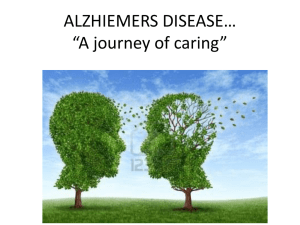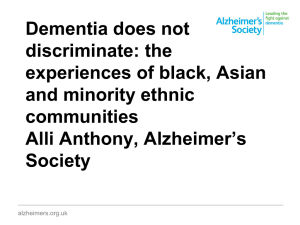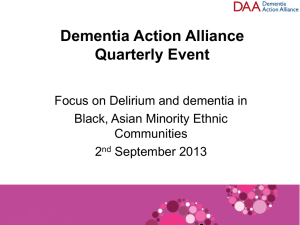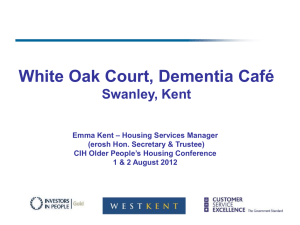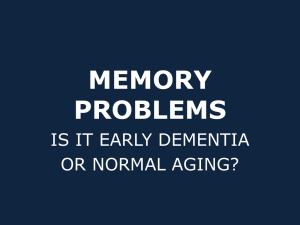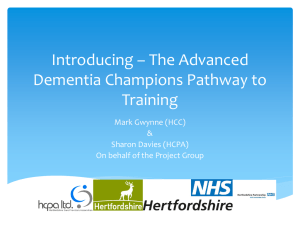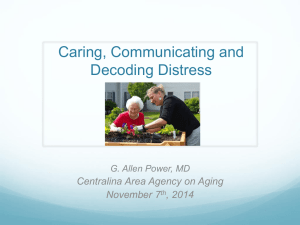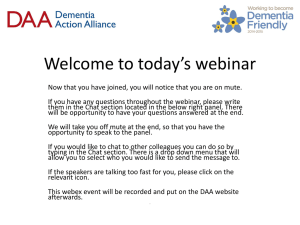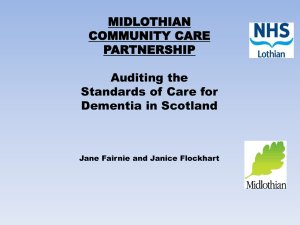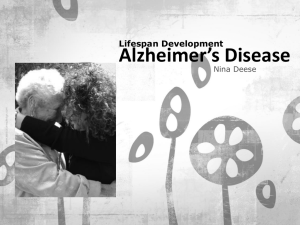Making the difference - Health Education England
advertisement
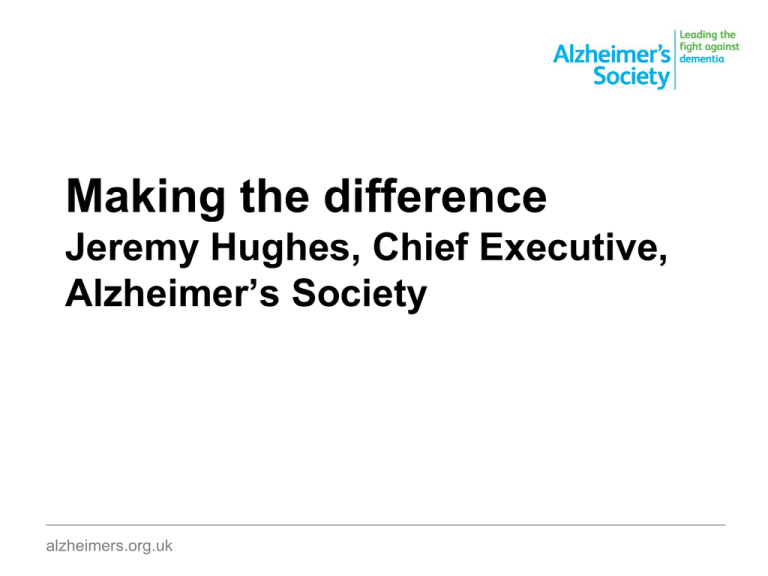
Making the difference Jeremy Hughes, Chief Executive, Alzheimer’s Society ________________________________________________________________________________________ alzheimers.org.uk What the numbers say about dementia care • Up to a quarter of hospital beds occupied by someone with dementia (Counting the cost, 2009) • People with a diagnosis of dementia have: •20% higher emergency readmission rates •30% higher avoidable admission rates •27% longer length of stay •36% higher death rate than patients without dementia (CQC State of care 2012/13) ________________________________________________________________________________________ alzheimers.org.uk Human cost of poor care “When we came to visit he had no bed and was lying on a mattress on the floor wearing nothing but an incontinence pad and an unbuttoned pyjama top. The door to the room was wide open and he was in full view of other patients and their visitors.” “One staff nurse told us that “He shouldn’t be in here” and they were not trained to look after people with his illness.” “She was confused with a happy disposition when admitted, but became unhappy, aggressive and very demented by the time of her discharge.” Quotes from Counting the cost, 2009 ________________________________________________________________________________________ alzheimers.org.uk Benefits of an educated workforce • Ensuring staff have understanding of dementia has benefits for services and users, including: •Helping ensure staff know how to assist people with dementia with eating and drinking, reducing risks of dehydration and malnutrition •Better management of behaviours which challenge, reducing need for restraint or use of antipsychotic drugs •Improved communication with service users and their carers. ________________________________________________________________________________________ alzheimers.org.uk Working together • Alzheimer’s Society is working closely with Health Education England to support better dementia training across the NHS. • The Society is inputting into proposals for rollout of tier one dementia training and advising on plans for tier two (intermediate) and three (advanced). ________________________________________________________________________________________ alzheimers.org.uk Meeting complex needs • Alzheimer’s Society is an expert in dementia care and we provide a wide number of training courses. • One of our key and popular courses is Meeting Complex needs. This course seeks to address the more challenging aspects of caring for people with dementia, providing organisations with the opportunity to tailor a programme to suit needs. ________________________________________________________________________________________ alzheimers.org.uk Meeting complex needs • This course has seven modules, covering the more complex elements of dementia care: •Dementia awareness revisited •Communication with people with dementia •Behaviours that challenge •Supporting relationships in dementia care •Activities in dementia care •The later stages of dementia •End of life care for people with dementia. ________________________________________________________________________________________ alzheimers.org.uk What our customers said about this course: “The course made me realise I need to give more time to residents and try and understand why they are upset.” “Fantastic trainer. Learned a lot, enjoyed it a lot!” “It was taken from a different angle from other courses which I thought was very good and easy to follow.” “One of the best training I had ever. Very happy to attend and be here. Tutor had a great knowledge and understanding of the topic. I hope to come again, such quality training.” “Great information, great teacher and very in-depth”. ________________________________________________________________________________________ alzheimers.org.uk FITS programme • Alzheimer’s Society developed an evidence-based training course for care home staff: FITS (Focussed Intervention Training and Support). • FITS was developed to reduce prescriptions of antipsychotic drugs in homes. A study evaluating FITS in nine homes found it reduced prescriptions by almost 50% compared to usual care, without making behavioural symptoms worse. • FITS is now being rolled out in 150 care homes across the UK. ________________________________________________________________________________________ alzheimers.org.uk Thank you ________________________________________________________________________________________ alzheimers.org.uk

